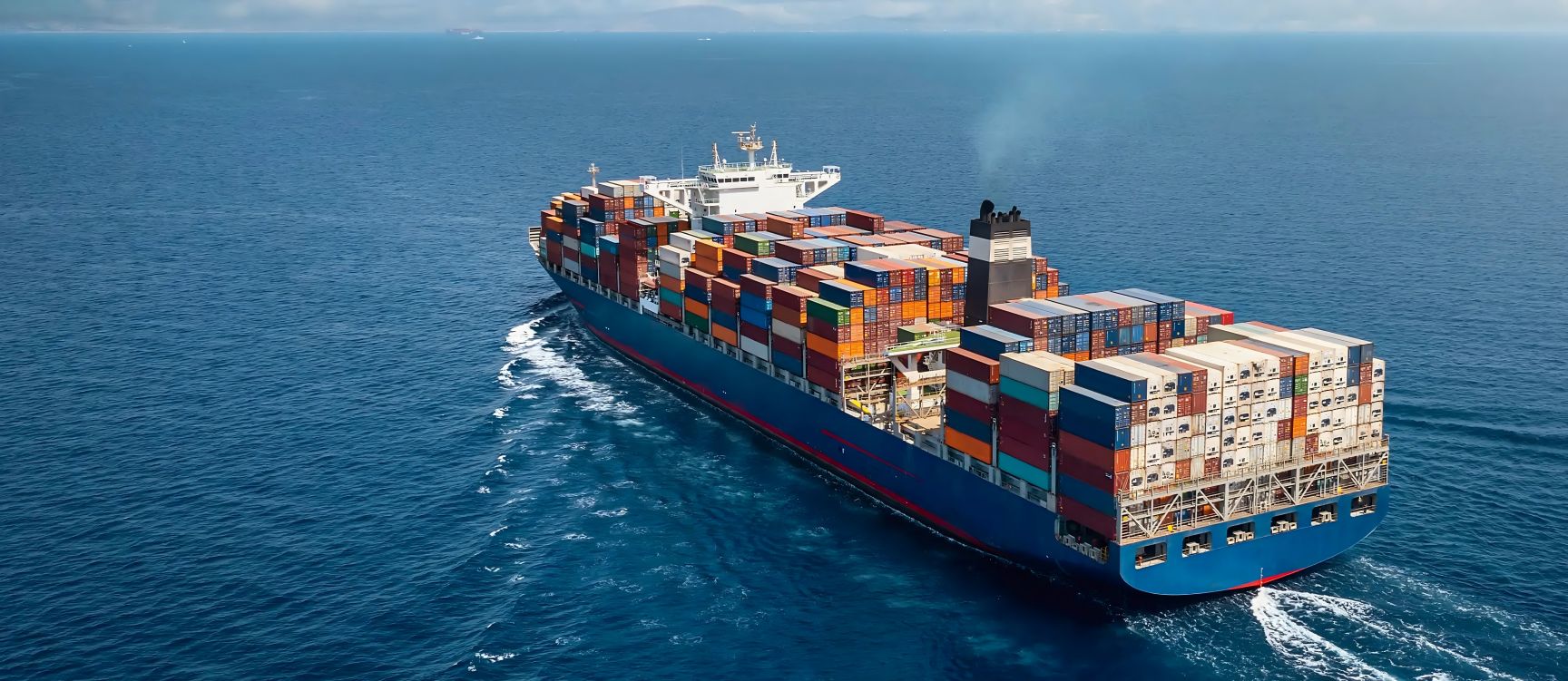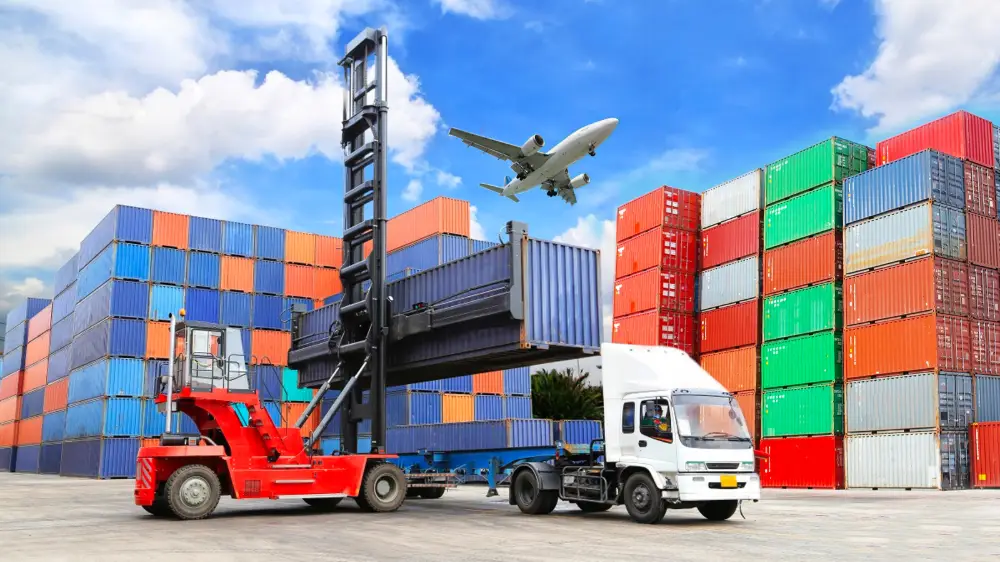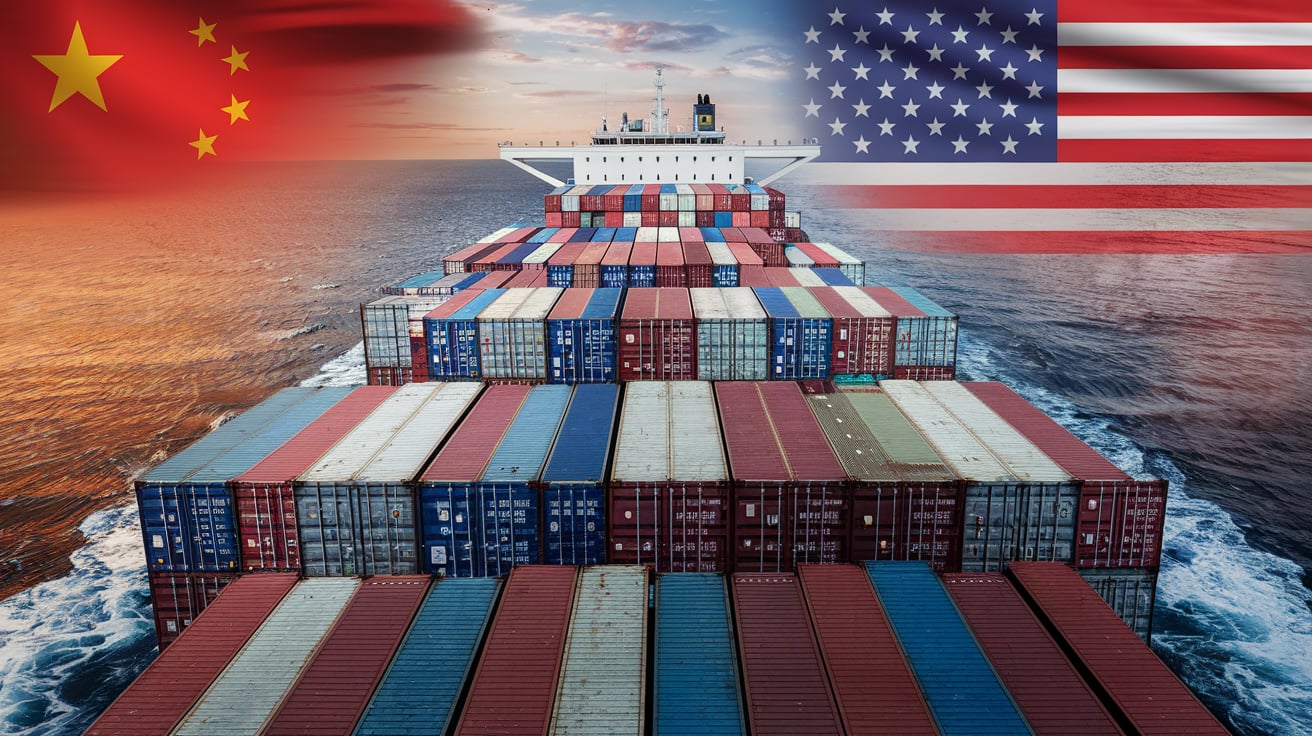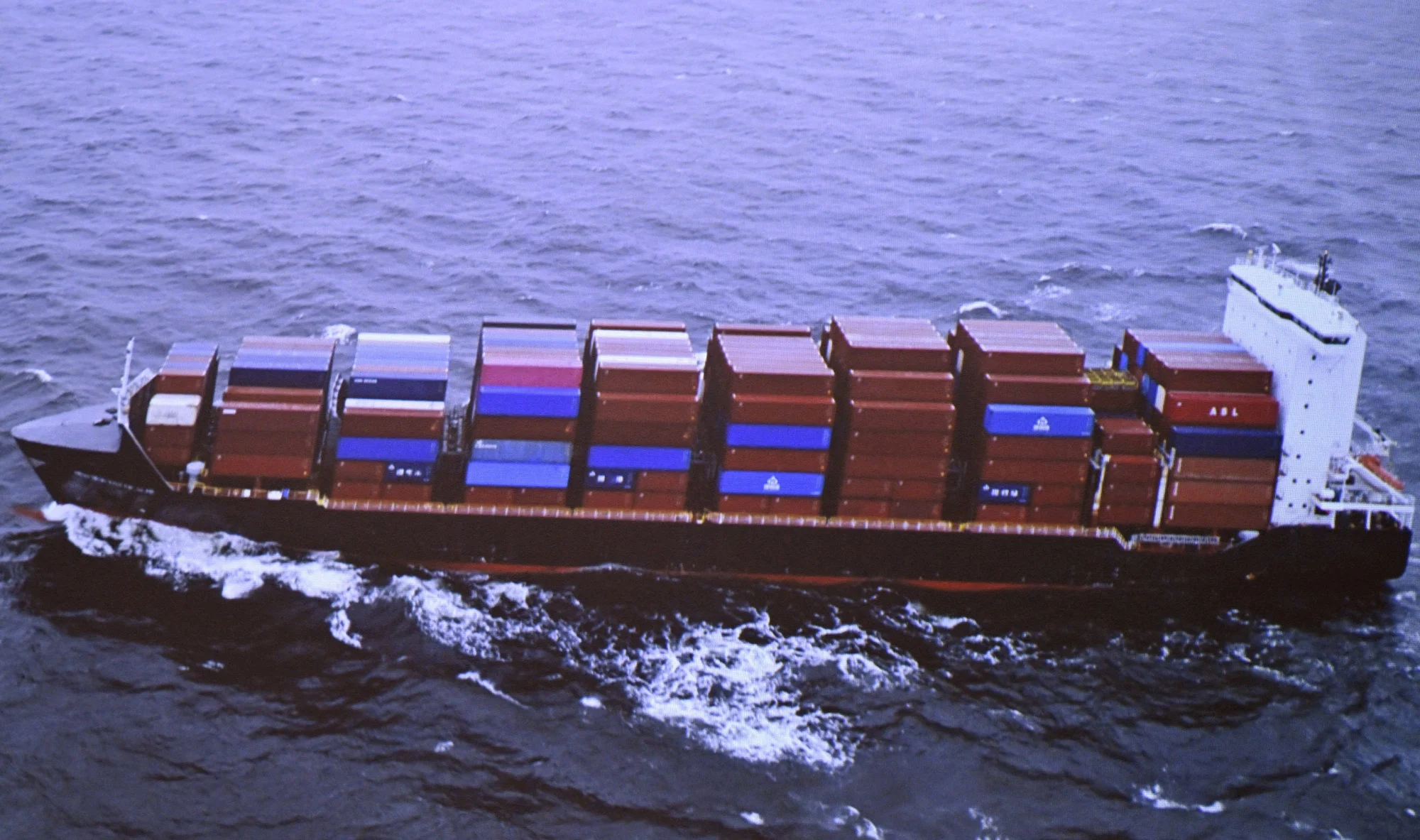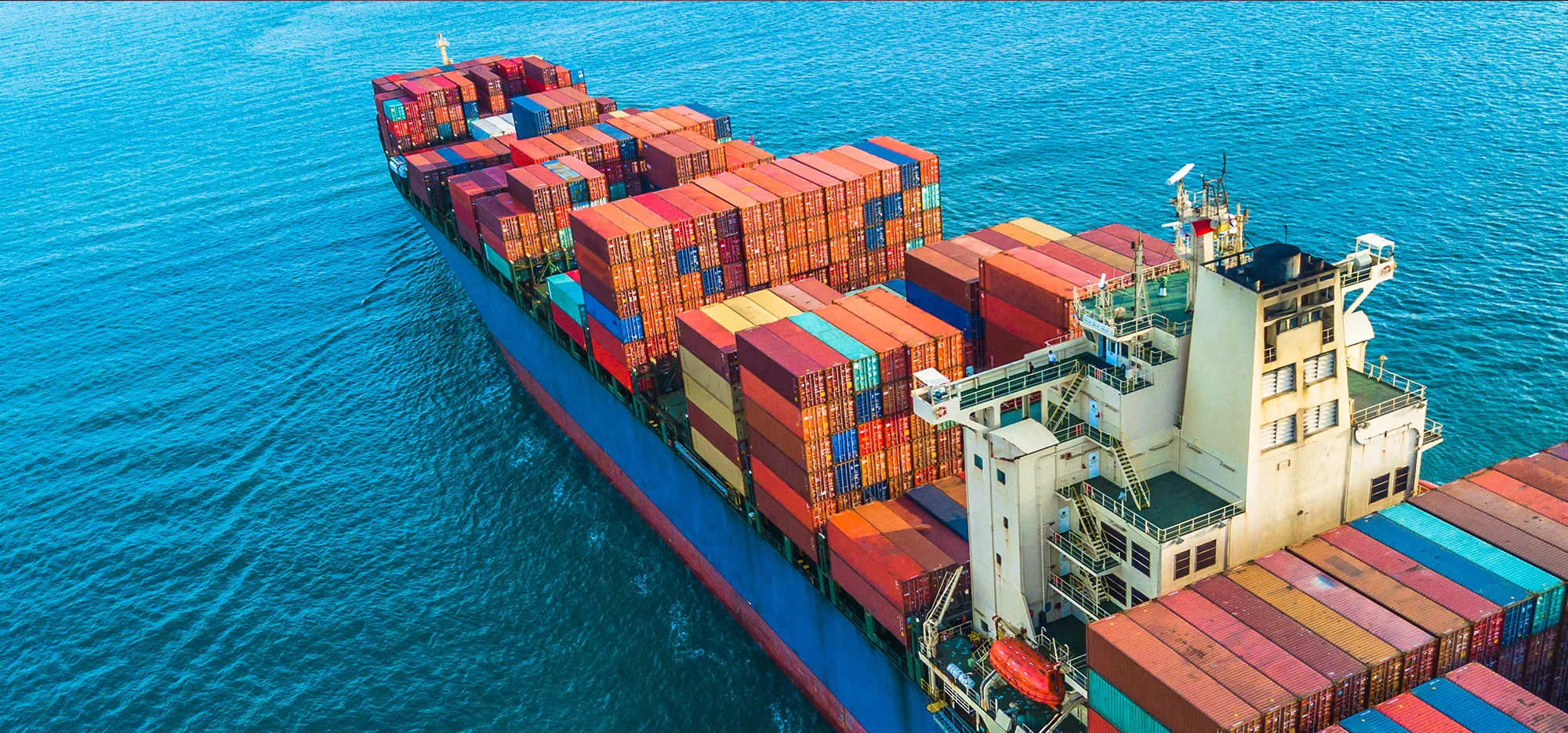Navigating the complexities of sea freight is crucial for businesses looking to import goods from China, particularly to regions like Libya. Sea freight, the transportation of goods via ocean vessels, offers a cost-effective solution for shipping large volumes of products across vast distances. Understanding the benefits, key considerations, and the intricate shipping process is essential for importers aiming to optimize their logistics operations. This guide delves into the advantages of sea freight, essential shipping methods, required documentation, customs clearance, and the costs and timeframes associated with shipping goods from China to Libya. Whether you are new to importing or seeking to enhance your existing knowledge, this comprehensive overview equips you with valuable insights to make informed shipping decisions.
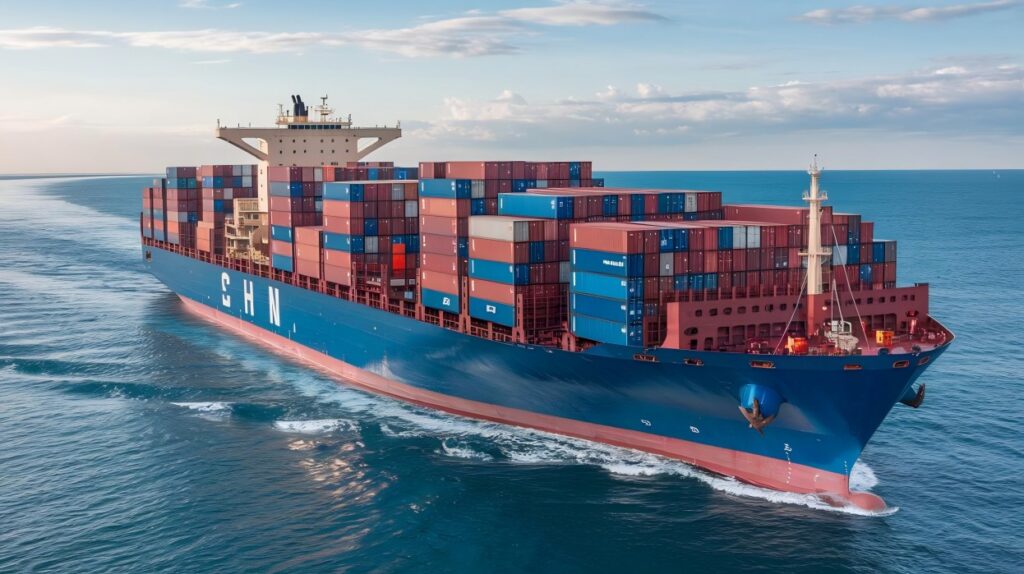
Understanding Sea Freight
What is Sea Freight and Why Choose It?
Sea freight refers to the transportation of goods via ocean vessels, which is a preferred method for importing large quantities of goods over long distances. This mode of shipping is often chosen due to its cost-effectiveness, especially compared to air freight. With the ability to transport massive volumes of cargo, sea freight is ideal for businesses looking to import goods in bulk, reducing shipping costs significantly per unit.
Choosing sea freight can also offer greater flexibility. Different types of vessels, such as container ships, bulk carriers, and roll-on/roll-off ships, cater to various shipping needs. For instance, container ships are designed for transporting goods in standardized containers, simplifying loading and unloading processes, while bulk carriers are optimized for shipping unpackaged goods like grains or minerals.
Benefits of Sea Freight for Importing Goods
-
Cost Efficiency: Sea freight is generally more economical than air freight, especially for larger shipments. Companies can save substantial amounts when importing goods from China, where production costs are often lower.
-
Capacity: Vessels can carry a vast amount of cargo at once, allowing businesses to import large quantities. This is particularly beneficial for retailers and wholesalers.
-
Environmental Impact: Shipping by sea produces fewer greenhouse gases compared to air freight, making it a more environmentally friendly option.
-
Safety and Security: Ocean freight services often provide enhanced security measures for cargo, reducing risks associated with theft or damage.
-
Global Reach: Sea freight can reach nearly all global markets. Importers can access various trade routes, providing a wide array of destination options.
-
Variety of Shipping Options: Importers can select between different types of vessels and shipping methods, including full container loads (FCL) and less-than-container loads (LCL), catering to specific shipment needs.
Key Considerations for Shipping from China to Libya
Shipping goods from China to Libya involves navigating various logistical and regulatory factors. Understanding these intricacies can facilitate smoother shipping processes and improve overall efficiency.
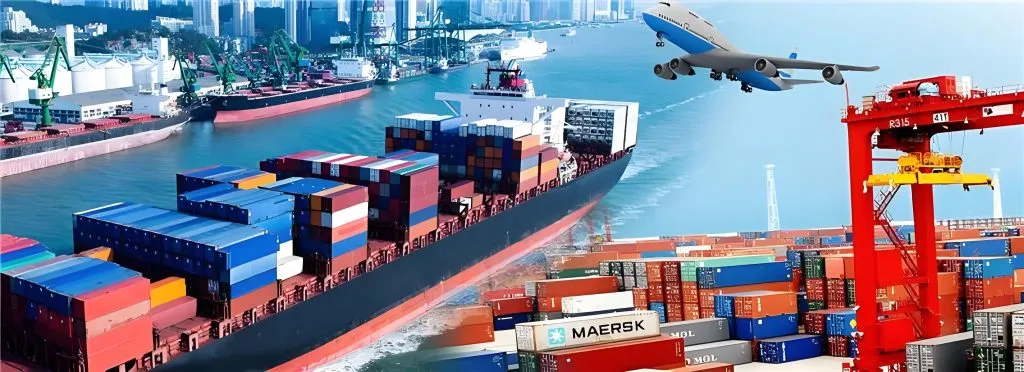
Shipping Methods
When shipping from China to Libya, importers can choose between various shipping methods:
-
Full Container Load (FCL): Ideal for large shipments, FCL means the entire container is used for one shipment. This option is highly efficient for businesses with substantial cargo volumes.
-
Less than Container Load (LCL): Suitable for smaller shipments, LCL consolidates multiple shipments from different shippers into one container. This method reduces shipping costs for businesses that do not have enough cargo to fill an entire container.
-
Break Bulk Shipping: This method is used for oversized cargo that cannot fit into standard containers. It requires careful planning and coordination.
Shipping Routes
Shipping routes from China to Libya typically involve major ports on both ends:
-
Port of Shanghai: One of the busiest ports in the world, it offers multiple shipping options and routes to Libya.
-
Port of Tripoli: This is Libya’s primary port, receiving most of the international shipments.
The shipping route may vary based on chosen transit times and shipping companies. Efficient routes may include stops at other Mediterranean ports, which can facilitate cargo transfer or consolidation.
Required Documents
To ensure a seamless shipping experience, it is crucial to prepare the following required documents:
-
Bill of Lading: This document serves as a receipt for the cargo and a contract between the shipper and carrier.
-
Commercial Invoice: It outlines the transaction between the buyer and seller and includes details about the goods being shipped.
-
Packing List: A detailed list of the items being shipped, including dimensions and weight.
-
Certificate of Origin: This document confirms the origin of the goods, which can be essential for customs clearance.
-
Import License: Depending on the type of goods being imported into Libya, an import license may be required.
Customs Clearance
Navigating customs clearance is a critical step in the shipping process. Importers must ensure compliance with both Chinese and Libyan customs regulations. The process typically involves:
-
Documentation Submission: All required documents must be submitted to customs authorities for approval.
-
Duties and Taxes: Import duties and taxes based on the goods’ value must be calculated and paid.
-
Inspections: Customs may conduct inspections to verify that the goods match the declared specifications.
-
Clearing Agents: Hiring a professional customs clearing agent can facilitate compliance and streamline the process.
Dantful International Logistics offers comprehensive support for all aspects of shipping, including customs clearance and warehouse services. By utilizing Dantful’s expertise, businesses can ensure a smooth and efficient shipping experience when importing goods from China to Libya or any other global destination. Whether you are considering Door-to-Door Shipping or need assistance with Insurance Services, Dantful is here to provide you with professional, cost-effective, and high-quality logistics solutions. Explore our services on Dantful Logistics today!
READ MORE:
- Shipping From China To Algeria
- Shipping From China To Angola
- Shipping From China To Morocco
- Shipping From China To Nigeria
- Shipping From China To Kenya
- Shipping From China To Tanzania
- Shipping From China To South Africa
Major Ports for Sea Freight
Top Chinese Ports for Exporting to Libya
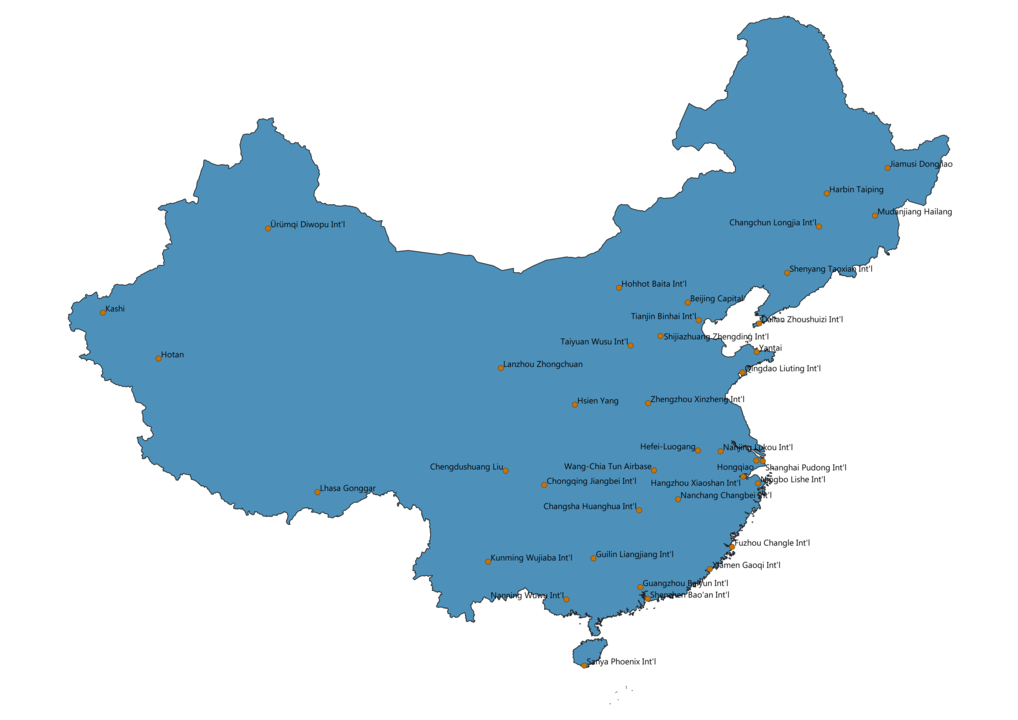
When considering the shipment of goods from China to Libya, various Chinese ports serve as crucial hubs for export. These ports are strategically located, equipped with advanced facilities, and have well-established shipping networks. The most notable ports include:
| Port Name | Location | Features |
|---|---|---|
| Port of Shanghai | Shanghai | The busiest port in the world, offering a vast network of shipping routes and services. |
| Port of Shenzhen | Shenzhen | Known for its efficiency and advanced technologies; it handles a significant volume of trade. |
| Port of Guangzhou | Guangzhou | A key hub for southern China and has extensive connections to international shipping lines. |
| Port of Ningbo | Ningbo | One of the largest ports in terms of cargo volume, providing excellent facilities for container handling. |
| Port of Tianjin | Tianjin | A critical port for northern China, well connected to the Beijing-Tianjin-Hebei region. |
These ports play an essential role in facilitating the export process to Libya and ensuring that goods reach their destination efficiently and safely.
Key Libyan Ports for Imports
Libya’s ports serve as significant entry points for international trade, particularly for goods imported from China. The primary ports in Libya include:
| Port Name | Location | Importance |
|---|---|---|
| Port of Tripoli | Tripoli | The largest port in Libya; it handles most of the country’s imports and exports. |
| Port of Misrata | Misrata | A vital commercial port known for its increasing trade activities. |
| Port of Benghazi | Benghazi | Historically significant; it plays a key role in regional trade. |
| Port of Zuwara | Zuwara | A developing port that handles both commercial goods and fishing activities. |
| Port of Khoms | Khoms | An important port for handling bulk cargo and general cargo shipments. |
These ports provide essential infrastructure for importing goods from China and facilitate the movement of products throughout Libya.
The Sea Freight Shipping Process Step-by-Step
Understanding the detailed process of sea freight shipping is essential for efficient logistics management. Below is a step-by-step overview of the shipping process from China to Libya.
1. Obtaining a Freight Quote and Booking
-
Providing Shipment Details to the Freight Forwarder: Importers should communicate specific details about the cargo, including weight, volume, dimensions, and type of goods.
-
Agreeing on Shipping Terms and Rates: After discussing the shipment, the freight forwarder provides a quote that outlines the costs involved. It’s vital to review shipping options such as DDP Shipping Services or Door-to-Door Shipping to determine what best fits your needs.
-
Confirming the Booking: Once terms are agreed upon, the importer confirms the booking, securing the shipment’s place on the chosen vessel.
2. Cargo Pick-up and Delivery to the Port
-
Arranging for Cargo Pick-up from the Supplier: The freight forwarder coordinates with the supplier for the timely collection of goods.
-
Transporting the Goods to the Port of Departure in China: After pick-up, the cargo is transported to the designated port for loading onto the vessel.
3. Export Customs Clearance in China
-
Submitting Required Documents: The freight forwarder submits all necessary documentation, including the commercial invoice and packing list.
-
Paying Export Duties and Taxes: Any applicable fees must be covered to ensure compliance with Chinese customs regulations, allowing the cargo to proceed.
4. Loading and Ocean Transportation
-
Loading the Cargo onto the Vessel: Once at the port, the cargo is loaded onto the vessel. Safety and cargo integrity are prioritized during this phase.
-
Transit Time from China to Libya: The transit time varies based on the chosen shipping route and vessel speed, typically taking between 20 to 35 days depending on the distance and route taken.
5. Import Customs Clearance in Libya
-
Submitting Import Documents: Upon arrival in Libya, the freight forwarder submits the required import documents for customs clearance.
-
Paying Import Duties and Taxes: Like export duties, import duties must be paid to allow the goods to clear customs and be released.
6. Cargo Unloading and Delivery to the Final Destination
-
Unloading the Cargo at the Port of Arrival in Libya: After customs clearance, the cargo is unloaded from the vessel at the port of Tripoli or any other designated port.
-
Arranging for Final Delivery to Your Warehouse or Facility: The final step involves coordinating transportation from the port to the importer’s warehouse or facility, ensuring that goods are delivered efficiently.
Navigating the sea freight shipping process can be complex, but partnering with a reliable logistics provider like Dantful International Logistics simplifies this journey. Dantful offers comprehensive services, including customs clearance, warehouse services, and tailored shipping solutions, ensuring that your goods move seamlessly from China to Libya. For efficient ocean freight solutions, consider Dantful’s professional and cost-effective services today.
Shipping Costs from China to Libya by Sea Freight
Understanding the costs associated with shipping goods from China to Libya via sea freight is essential for importers looking to manage their logistics budgets effectively. This section provides a detailed breakdown of sea freight costs and offers tips for reducing shipping expenses.
Breakdown of Sea Freight Costs
The total shipping costs incurred when importing goods from China to Libya can be categorized into several key components:
| Cost Component | Description |
|---|---|
| Freight Charges | The primary cost for transporting cargo by sea. This varies based on the shipping method (FCL or LCL), cargo volume, and distance. |
| Port Charges | Fees for using the port facilities, including loading and unloading charges, wharfage, and handling fees. |
| Customs Duties and Taxes | Tariffs imposed by Libyan authorities on imported goods. The duty rate depends on the product classification. |
| Insurance Costs | Optional but recommended insurance to protect goods against loss or damage during transit. Costs depend on the cargo value. |
| Documentation Fees | Fees for preparing essential shipping documents, including the bill of lading and commercial invoice. |
| Delivery Charges | Costs associated with transporting goods to the final destination within Libya after they arrive at the port. |
This comprehensive breakdown allows importers to better understand where their shipping expenses are allocated and plan accordingly.
Tips for Reducing Shipping Expenses
-
Consolidate Shipments: If possible, combine multiple smaller shipments into one larger shipment. Opting for Full Container Load (FCL) can significantly reduce per-unit shipping costs compared to Less than Container Load (LCL).
-
Negotiate Rates: Engage in discussions with freight forwarders to negotiate better rates. Long-term contracts or repeated business can help in obtaining discounts.
-
Optimize Packaging: Ensure that goods are packaged efficiently to maximize container space. Reducing excess packaging can lower shipping costs associated with weight and volume.
-
Choose the Right Freight Forwarder: Partnering with a reputable logistics provider like Dantful International Logistics can offer competitive rates and professional guidance, helping you find the most cost-effective solutions.
-
Plan Shipping Dates: Shipping during off-peak seasons can result in lower freight costs. Understanding market trends and peak shipping times can assist in choosing optimal shipping dates.
-
Review Insurance Options: While insurance is important, ensure you are not over-insuring your cargo. Assess the value of your goods and choose an appropriate coverage level.
Dantful International Logistics Services:
- Dantful Ocean Freight Services
- Air Freight From China
- Amazon FBA Freight Forwarding
- WAREHOUSE Services
- One-Stop Customs Clearance Solution
- Cargo Insurance Services in China
- DDP Shipping Services By Dantful Logistics
- Out of Gauge Cargo Transportation Shipping Services
Shipping Times from China to Libya by Sea Freight
Shipping times are a crucial factor for businesses importing goods. Understanding the typical transit times involved can aid in supply chain planning and inventory management.
Port-to-Port Delivery
Typical Transit Times for Major Port Pairs
The transit time for shipping from China to Libya can vary significantly based on the ports involved and other logistical factors. Below is an overview of typical transit times for major port pairs:
| Port of Departure | Port of Arrival | Typical Transit Time |
|---|---|---|
| Port of Shanghai | Port of Tripoli | 25-30 days |
| Port of Shenzhen | Port of Misrata | 22-28 days |
| Port of Ningbo | Port of Benghazi | 24-32 days |
| Port of Guangzhou | Port of Zuwara | 23-29 days |
These times are estimates and can be influenced by various factors, including shipping line schedules and customs processing times.
Factors Affecting Port-to-Port Delivery Times
Several variables can impact the transit times for sea freight, including:
- Weather Conditions: Adverse weather can cause delays in shipping schedules.
- Port Congestion: High volumes of vessels at ports can lead to increased waiting times for unloading.
- Customs Clearance: Delays in customs processing can prolong transit times, highlighting the importance of timely and accurate documentation.
- Shipping Line Efficiency: Each shipping line has different operational efficiencies, which can affect delivery times.
Door-to-Door Delivery
Door-to-Door Delivery is an integrated service that covers the entire logistics process, from the supplier’s warehouse in China to the recipient’s location in Libya. This service is designed to provide a seamless experience for importers, covering multiple logistics steps, including:
- Cargo Collection from Supplier: The freight forwarder arranges for the collection of goods from the supplier’s facility.
- Transport to Port: Goods are then transported to the departure port for loading onto the vessel.
- Shipping and Customs Clearance: The cargo is shipped, with customs clearance handled both in China and upon arrival in Libya.
- Final Delivery: Once cleared, the goods are delivered directly to the recipient’s designated address.
Door-to-door delivery is particularly advantageous for businesses looking to minimize their involvement in logistics management and streamline the shipping process.
Partnering with Dantful International Logistics allows businesses to take advantage of comprehensive services, including Customs Clearance and Warehousing Services, ensuring a smooth shipping process from China to Libya. For more information about tailored shipping solutions, visit Dantful Logistics today.
FAQs
1. What is sea freight and why should I choose it for importing goods?
Sea freight involves transporting goods via ocean vessels and is often preferred for long-distance shipping due to its cost-effectiveness for large shipments. It allows for transportation of massive volumes of cargo at a lower cost per unit compared to air freight, making it ideal for businesses looking to import goods in bulk.
2. What types of shipping methods are available when transporting goods from China to Libya?
Importers can choose from several shipping methods:
- Full Container Load (FCL): Entire container for one shipment, ideal for large volumes.
- Less than Container Load (LCL): Multiple smaller shipments consolidated into one container, suitable for smaller shipments.
- Break Bulk Shipping: For oversized cargo that cannot fit into standard containers.
3. What documents are required for shipping from China to Libya?
Essential documents include:
- Bill of Lading
- Commercial Invoice
- Packing List
- Certificate of Origin
- Import License (if required for specific goods)
4. How does the customs clearance process work?
Customs clearance involves submitting necessary documents, paying applicable duties and taxes, and possibly undergoing inspections. It is crucial for ensuring compliance with both Chinese and Libyan customs regulations. Hiring a professional customs clearing agent can streamline this process.
5. What are the main ports involved in shipping from China to Libya?
Key shipping ports in China include:
- Port of Shanghai
- Port of Shenzhen
- Port of Guangzhou
In Libya, significant ports include:
- Port of Tripoli
- Port of Misrata
- Port of Benghazi
6. What factors affect shipping costs when importing from China to Libya?
Shipping costs can vary based on:
- Freight charges (FCL vs. LCL)
- Port charges
- Customs duties and taxes
- Insurance costs
- Documentation fees
- Delivery charges
7. What are typical shipping times from China to Libya?
Transit times can vary based on the departure and arrival ports. Typical transit times are approximately 20 to 35 days, depending on the shipping route and the efficiency of the shipping line.
| Port of Departure | Port of Arrival | Typical Transit Time |
|---|---|---|
| Port of Shanghai | Port of Tripoli | 25-30 days |
| Port of Shenzhen | Port of Misrata | 22-28 days |
| Port of Ningbo | Port of Benghazi | 24-32 days |
| Port of Guangzhou | Port of Zuwara | 23-29 days |
8. What is Door-to-Door Delivery, and how does it work?
Door-to-Door Delivery is a comprehensive shipping service that covers the entire logistics process, from collection at the supplier’s warehouse in China to delivery at the recipient’s address in Libya. It streamlines the shipping experience by integrating cargo collection, transportation, customs clearance, and final delivery.

Young Chiu is a seasoned logistics expert with over 15 years of experience in international freight forwarding and supply chain management. As CEO of Dantful International Logistics, Young is dedicated to providing valuable insights and practical advice to businesses navigating the complexities of global shipping.
The other language versions of this article
- دليل خطوة بخطوة للشحن البحري من الصين إلى ليبيا
- Stapsgewijze handleiding voor zeevracht van China naar Libië
- Guide étape par étape du fret maritime de la Chine vers la Libye
- Schritt-für-Schritt-Anleitung für Seefracht von China nach Libyen
- Guida dettagliata al trasporto marittimo dalla Cina alla Libia
- Guía paso a paso para el transporte marítimo de China a Libia
- Guia passo a passo para frete marítimo da China para a Líbia
- Пошаговое руководство по морским перевозкам из Китая в Ливию
- Çin’den Libya’ya Deniz Taşımacılığına İlişkin Adım Adım Kılavuz











